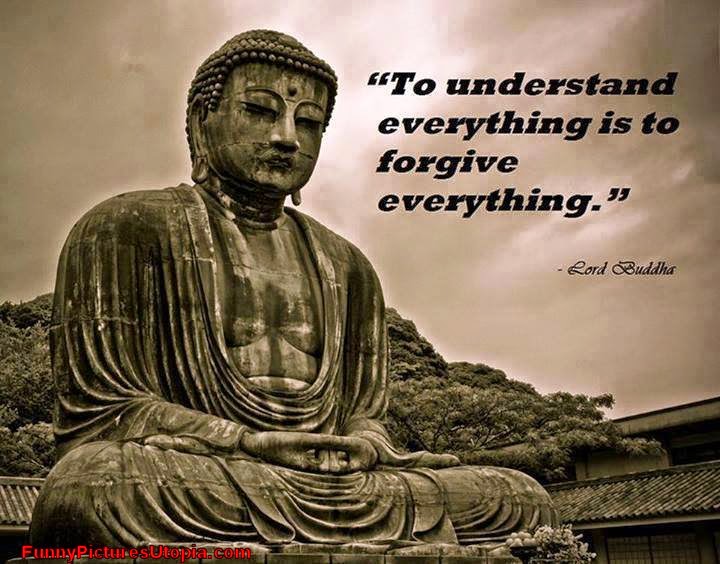Forgiveness is the best form of offence. It
frees you from suffering__caused by the pain inflicted by someone__and helps
that someone reflect and repair from whatever they have done unto you. It’s a
win-win.
Think deeply and you will agree with my
perspective. Often times people hurt us with their actions, thoughts and
utterances. They lie on us, they betray our trust in them, they speak ill
behind our back, they take away what is rightfully ours and they leave us
numbed. None of this feels good. The first, obvious, logical response, in all
such situations, is to freak out, scream, kick, demand why, seek to know why
were you betrayed…..and eventually, over a
period of weeks, the angst morphs into a ‘certain coldness’ and eventually, you
stop trusting people. While this may seem a normal and appropriate response in
“self-defense” (so that you are not betrayed one more time), the flip side is
it will leave you perpetually grieving. And how can you live fully, peacefully,
if you are forever in a state of suffering?

Here’s a Zen story that will sensitize you to
the perils of carrying the baggage of being ‘unforgiving’! Once there was a
monk who asked his disciples to carve out names of the people they cannot
forgive on potatoes, one potato for each name. Then the disciples were asked to
put all their potatoes in a sack and carry it with them at all times for one
week. The longer the time went by, the heavier the potatoes seemed to have
become. To make the matter worse, those carved potatoes also started to rot and
smell bad. It was such an unpleasant experience for the disciples. At the end
of the week, the Master asked, "So, what did you learn?" At once the
disciples told the Master that they now realized that holding on to grudges
only brought negativity to them. Asked how they should go about correcting it,
the youngsters said they should strive their best to forgive everyone that used
to cross them and made them angry. The Master then asked, "What if someone
crosses you again after you unload this present load of potatoes?" The
disciples suddenly felt terrified at the thought of having to start all over
again with new potatoes, week after week. "What can we do if there are
still other people crossing us? We cannot control what other people do to
us!" they confessed. At which point the Master replied, "So far we
only discussed the conventional way to approach forgiveness, that is, to strive
to forgive. Striving is difficult. In Zen, there is no striving." Seeing
the disciples completely at a loss then, the Master further suggested, "If
the negative feelings are the potatoes, what is the sack?" The disciples
finally grasped it. "Ah, the sack is something that allows me to hold on
to the negativity. It is my inflated sense of self-importance!" replied
one of them. And that was the lesson of this story. Once we learn how to let go
of the sack, whatever people say or do against us would no longer matter.
In Zen, forgiveness is the conscious decision
to get rid of the sack/sense of self-importance altogether, not just the
potatoes/negative feelings. With the understanding of Zen, Life suddenly
becomes effortless, elegant, and natural. Get rid of the sack, and there will
be no more rotten potatoes. Even if we, lesser mortals, as we may erroneously
imagine, stop carving potatoes, it is a small, humble beginning. But those of
us who believe in a strategic, planned, precise approach to Life, may want to
consider forgiveness as a tool and not just a spiritual concept. Former
American President Bill Clinton once shared what he learned from Nelson Mandela
on forgiveness. In one meeting of the two men, Clinton asked, "I wonder
what you must have felt towards your jailers when you were walking out of that
prison after those 27 years. Weren't you angry at them?" "Yes, I was
angry. And I was a little afraid," answered Mandela. "After all, I've
not been free in so long." "But," he added, "when I felt
that anger welling up inside me, I realized that if I continue to hate them
after I got outside that gate, then they would still have me." With a
smile, Mandela concluded, "I wanted to be free, so I let it go."
So, for the thinking, strategizing,
master-craftsmen and wonderful upwardly-mobile wise women of the modern world,
I would say, choose forgiveness to be liberated, to be free. Also consider
forgiveness as a form of offence in today’s world. A peaceful resistance to the
crude, unethical practices that attempt to derail you, your career and your
Life. None of this is my original hypothesis, let me hasten to clarify. Here
are the words of Christ found in his teaching in Matthew 5-38-48: “But I say to
you , love your enemies, bless those who curse you, do good to those who hate
you, and pray for those who spitefully use and persecute you.” Loving someone
who loves you is easy. Loving someone who hates you is difficult. So, whether
it is a challenge like an exciting new electronic game (like Angry Birds!) or a
form of offence or a tool to freedom, forgiveness makes imminent sense. Only,
of course, if you want it to!

















